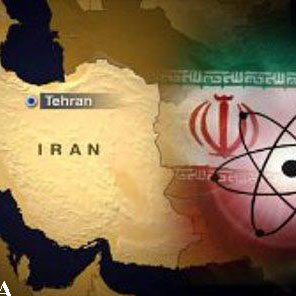Iran defiant on nukes at UN diplomats’ dinner

By MATTHEW LEE
The Associated Press
Friday, May 7, 2010; 2:35 PM
WASHINGTON -- Iran won’t stop enriching uranium and has a right to pursue atomic technology, the country’s foreign minister told U.N. Security Council diplomats at a private dinner.
A U.S. official familiar with Thursday night’s meeting in New York told The Associated Press that Manouchehr Mottaki was defiant in the face of demands that Iran halt the process that can produce fuel for a nuclear weapon.
The official, who spoke on condition of anonymity because he was not authorized to discuss the matter publicly, said talks at the Iranian-hosted event made no progress in resolving the nuclear dispute.
That assessment was echoed by State Department spokesman P.J. Crowley, who told reporters that the discussion at the meeting had been "a frank and professional exchange" but "yet another missed opportunity by Iran to meet its international obligations."
"We literally heard nothing new," he said.
Mottaki invited diplomats from all 15 members of the Security Council to the two-hour dinner in what was seen as Iran’s latest high-profile attempt to head off additional penalties over its nuclear program.
Western diplomats said it was a rare move; the Obama administration sent its deputy U.N. ambassador, Alejandro Wolff, to the meeting. For the U.S. and Iran, which do not have diplomatic relations, it was one of the highest-ranking contacts in recent years.
Mottaki said Iran would not suspend uranium enrichment, the official said. The foreign minister said that position was firm and would not change even if Iran accepted a proposal to send uranium from a medical research reactor in Tehran abroad for reprocessing, the official said Friday.
Wolff and others raised what they said were "significant flaws and shortcomings in Iran’s approach" in dealing with the international community, Crowley said.
The U.S. and other Western countries accuse Iran of trying to develop nuclear weapons under cover of a civilian atomic energy program. Iran denies the charge. The Obama administration is leading a charge in the Security Council to impose a fourth round of U.N. penalties.
The council’s five permanent members - the U.S., China, Russia, Britain and France - along with Germany are holding talks on the issue.
On Friday, Secretary of State Hillary Rodham Clinton joined a conference call with senior officials from Britain, France, Germany and the European Union to go over details of the possible new sanctions. Crowley said that work on a new sanctions resolution continued and that the U.S. hoped to move forward with it "in the coming weeks."
Russia and China hope diplomacy will lead Iran to the negotiating table, and have indicated they will only agree to much weaker measures if Tehran refuses.
Lebanon holds the council’s rotating presidency this month and the other nonpermanent members are Austria, Bosnia, Brazil, Gabon, Japan, Mexico, Nigeria, Turkey and Uganda.
In addition to discussing the nuclear impasse, Crowley said Wolff had handed Mottaki letters from the families of three American hikers now detained in Iran appealing for their release. He also passed on a letter from the family of a former FBI agent who went missing in Iran three years ago seeking information about his fate.

